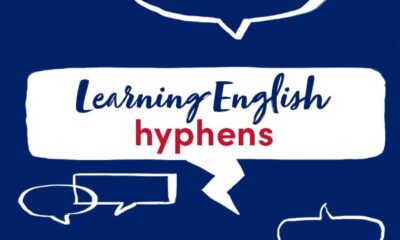It’s time for your next instalment of our French Word of the Week. This week we’re looking at the verb demander.
If you listen to the audio clip below, you can hear the correct pronunciation of demander:
This French verb is something of a ‘false friend’ or ‘faux ami’ – you might have noticed its similarity to the English word demand and assumed that it means to demand. However, demander is not about being demanding, in fact it’s quite the opposite. When we translate demander into English, the most common equivalent would be to ask or to request (much more polite!).
Demander follows regular -er verb conjugation patterns in every tense. You can get a refresher on this from our Easy Learning French Grammar pages about regular conjugation of -er verbs in the present tense as well as the present subjunctive and imperfect tense.
Now let’s see this word in action:
demander quelque chose à quelqu’un to ask someone something
J’ai demandé des conseils à mon frère ainé. I asked my big brother for advice.
Il faut demander la permission avant d’y entrer. It is necessary to ask permission before going in there.
demander à quelqu’un de faire quelque chose to ask someone to do something
Mes collègues me demandent d’aider avec les photocopies. My colleagues are asking me to help with the photocopies.
On vous demande au téléphone, êtes-vous disponible ? There’s someone asking for you on the phone, are you free?
C’est très simple – nous ne demandons pas la lune. It’s very simple – we aren’t asking the impossible. (This idiom literally translates as ‘asking for the moon’ – one we also use in English.)
Que demander de plus ? What more could you ask for?; What more could you want?
The reflexive form of the verb, se demander, has a similar meaning – it is usually translated to wonder or to ask oneself:
Je me demandais si ce serait une bonne idée. I was wondering to myself whether it would be a good idea.
On se demande si cela va changer les choses. They ask themselves whether this is going to change things.
Throughout our examples, we have sometimes used the 3rd person singular form of the present tense, demande. It might be useful to know that this same spelling is also used for the feminine noun demande. You’ll be able to work out from context whether it’s being used as a verb or a noun, but it means something similar to the verb in any case:
une demande a request; an application; a demand
Eliel est en train de faire une demande pour son visa d’étudiant. Eliel is in the process of making his student visa application.
Je dois toujours accepter les grosses demandes de nos clients. I always have to take on the huge requests from our clients.
We hope that you’ve picked up something new in our blog this week. Keep asking questions and stay inquisitive – it’s the best way to learn! Come back next time for our new French word of the week blog.
Written by Holly Tarbet, freelance copywriter and editor.
All opinions expressed on this blog are those of the individual writers, and do not necessarily reflect the opinions or policies of Collins, or its parent company, HarperCollins



